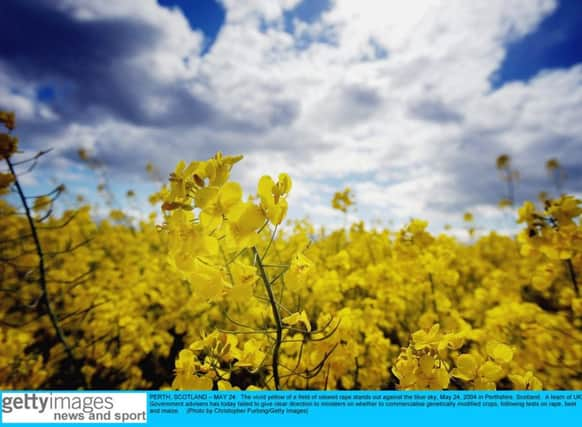Tom Peterkin: Is GM crops ban for the Green vote?


Not having a serious scientific discussion on a issue which will have such a big impact on Scotland’s agricultural community and its scientific research centres appears an astonishing omission. It also seems rather convenient that the Rural Affairs Secretary Richard Lochhead rail-roaded the decision at a time when Scotland is bereft of a chief scientific adviser.
To this observer, it does not seem a conspiracy theory too far to suggest that the GM crop ban went ahead because the Scottish Government’s green credentials needed a bit of a boost.
Advertisement
Hide AdAdvertisement
Hide AdEnvironmental campaigners have been expressing unease about the prospect of fracking in Scotland. There is also concern about Scottish Government’s plans to halve and then scrap air passenger duty when the levy is devolved to Holyrood as part of the Scotland Bill.
On fracking, the Scottish Government has announced a moratorium – an act which has conveniently parked the issue until after next year’s Scottish election. However those against the extraction of shale gas in the central belt are worried that the prospect of exploiting another energy source and the resulting boost to the economy could see ministers embrace the new technology in the future. The fears of the anti-frackers were hardly assuaged by the comments made this summer by Jim Ratcliffe, the chief executive of Ineos, the company with big ambitions to kick-start a Scottish fracking industry. Ratcliffe claimed to have assurances from the Scottish Government that it was “not against fracking”.
The air passenger duty issue has also raised environmentalist hackles, with the Green Party warning that the Scottish Governments’ ultimate aim of scrapping the duty will increase climate change emissions by 60,000 tonnes a year.
So with a Scottish election around the corner and a certain amount of disquiet being expressed about the Scottish Government’s plans for the environment, rolling out a GM crop ban based on minimal research could be seen as an attempt to win the green vote. Whether a GM ban is the right or wrong thing to do, imposing it without proper consideration of the science only encourages the view that it is the government which is acting cynically.